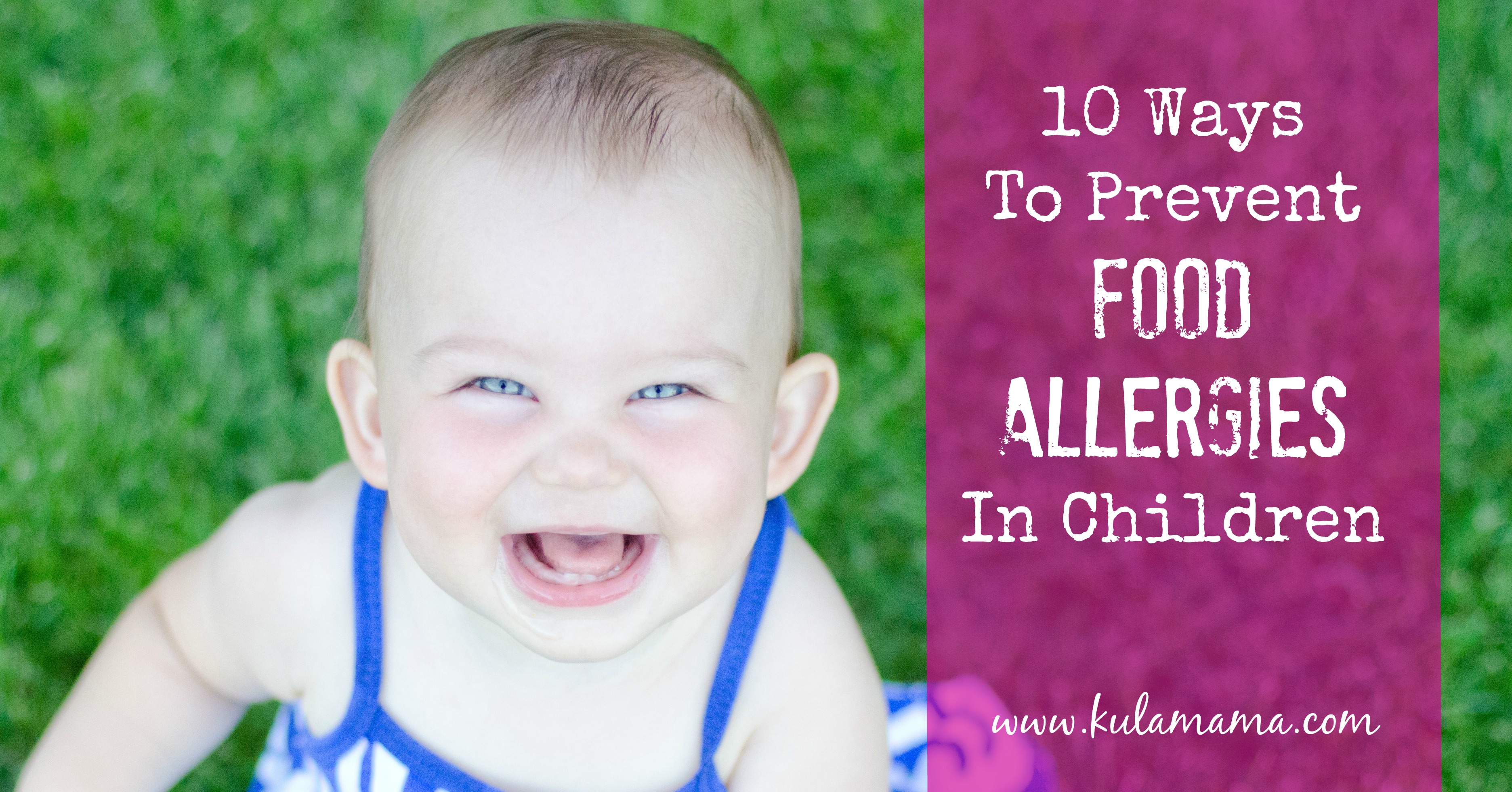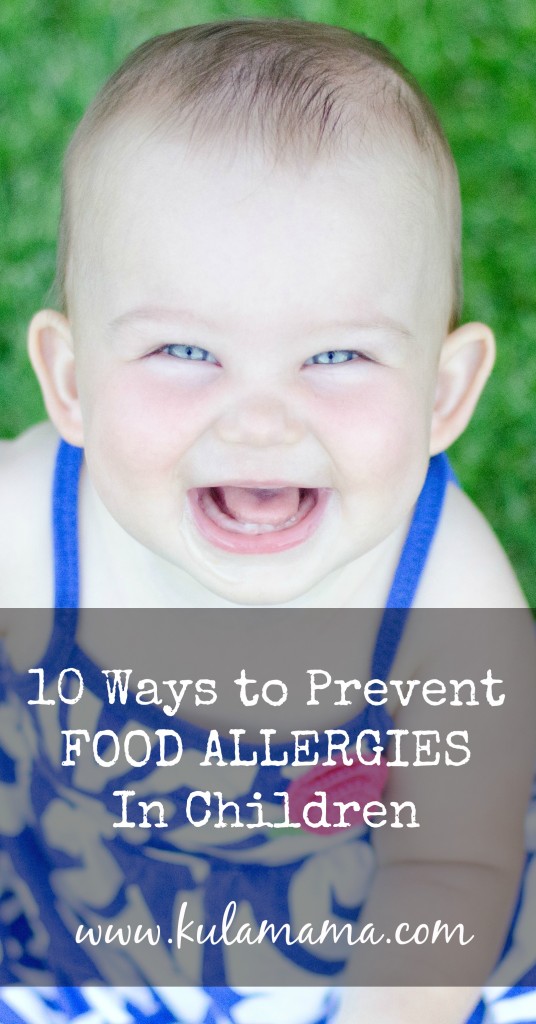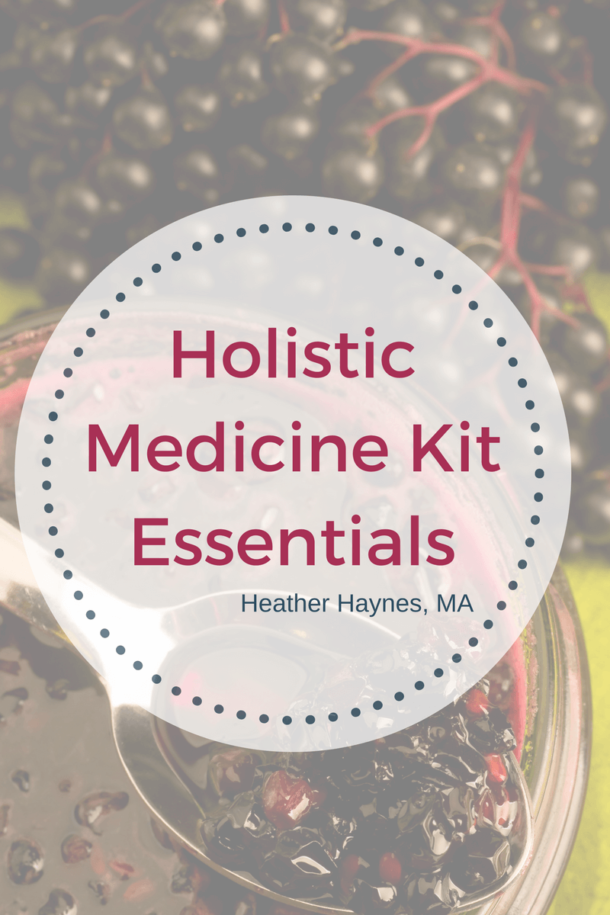If you read last week’s post about the rise in childhood food allergies, you know that a child born today has a 1 in 12 chance of having a serious food allergy. The current generation of allergy babies is enough to give any parent-to-be pause when planning a family. As a parent, are there things you can do to prevent food allergies? Or is it a gamble? Is it a roll of the dice when it comes to your baby’s health?
While there is so much more to be studied as it relates to genetics, environmental triggers and food allergies…we do know there are some preventative measures you can take TODAY, to help your baby avoid food allergies down the line. Here are 10 ways to prevent food allergies in children.
10 Ways to Prevent Food Allergies in Children
1. Heal Your Gut BEFORE Pregnancy.
The gut health of a pregnant or nursing mom has an immense effect on the health of her baby. In order for a child to populate a strong, thriving digestive tract with beneficial probiotic flora, the mother must have a strong digestive function. Babies receive probiotics from the mother beginning at birth. So to help your child build a healthy digestive tract take 6 months prior to conception to heal the gut and build up nutrition stores. Not sure where to start? This is a wonderful book and Ecourse to guide you.
2. Breastfeed (And If You Can’t, Make Your Own Formula)
Formula, even organic formula, contains sugar, processed ingredients and GMOs. Studies have shown that formula fed babies have trouble colonizing the digestive tract with healthy flora which can impact immune function. (source) Breastfeeding on the other hand provides your baby with beneficial probiotics and healthy fats. Can’t breastfeed? Then consider making your own formula and skip the commercial stuff, organic or not.
3. Serve Real Food From The Start (P.S.-Ditch Commercial Rice Cereal, FOREVER.)
Real food is defined as food in its natural state, free of processing and chemicals. Real food is food your grandmother would recognize. For a child to thrive digestively, he must be fed food that is full of nutrients and free of chemicals and toxins. Processed food, including rice cereal for babies, provides no nutrition to your child’s developing brain, and also stresses the digestive tract.
4. Avoid Antibiotics In All Forms (Prescriptions, Wipes and Soaps) and Let Kids Get DIRTY!
As counter intuitive as it sounds, bacteria in the gut is the KEY to health. When children take prescription antibiotics, eat food containing antibiotics or use antibiotic wipes and soap their healthy gut flora is killed off, making it hard to establish a thriving immune function. In fact, early antibiotic use in children is directly related to an increased risk of food allergies and asthma. (source) So forgo the antibiotics whenever possible and implement natural remedies instead. Then let your kids go outside (in the SUN!) and get dirty. The bacteria they pick up naturally from the earth helps to create a robust immune function.
5. Avoid GMOs Like The PLAGUE.
Studies on genetically modified organisms have shown they are both inflammatory and allergenic. And sadly GMOs can be found in an array of packaged food items marketed to babies and children, including INFANT FORMULA. Learn how to avoid GMOs in your child’s diet here. And learn more about other foods sprayed with glyphosate too.
6. Properly Prepare Food
Even food from nature contains natural toxins like phytic acid. Plants have to protect themselves from predators too! However, when we eat food that has not been properly prepared to denature these natural toxins, it creates inflammation in the body and lowers nutrient absorption. Things like soaking and sprouting grains, legumes, nuts and seeds will help children get the most from their food. Want to learn more? Check out these great resources here and here
.
7. Keep Inflammation Low.
Chronic inflammation is the basis of all disease, including food allergies. To help your child thrive, make sure your child’s diet and home life contain many anti-inflammatory elements. Incorporate gut healing and fermented foods into the diet to help form a strong digestive function. Include nutrient-dense foods to bolster immune function. And lower exposure to chemicals and heavy metals in the home by greening your living space.
8. Include Gut Healing Foods EARLY.
We will never be able to protect our children from the array of gut damaging contaminants in the world today (water, pesticides, heavy metals, antibiotics, pollution, and more!). A child faces contaminants every day that kill off the good bacteria in the gut and impact immune function. So from the start it is important that your child’s diet always contains gut healing foods like bone broth and fermented foods full of probiotics. These foods will help your child’s body repair daily gut damage. Check out this book here to learn how to make your baby’s first bone broth and fermented foods.
9. Give Your Child Clean Water.
A baby’s body is over 70% water! Water serves as a wonderful detoxifier or cleanser when it is filtered and free of chemicals, plastics and toxins. If children drink unfiltered water their bodies have to work harder to detoxify and water becomes a source of pollution instead of a source of cleansing. Want to learn more about clean water? Start here.
10. Green Your Home From Day One.
Unfortunately indoor pollution is one of the biggest sources of chemical exposure for children. If a child’s immune system is busy trying to detoxify from heavy metals and neurotoxins in the home, it won’t be able function properly. A poor functioning immune system creates an environment ripe for the development of food allergies. Give your child a good start by greening your home. Don’t know how? Start here.
Have you done things to protect your child from food allergies? What would YOU add to this list? Tell me in the comments below!




Thank you for these articles! I have a three month old who is exclusively breastfed. Unfortunately, I am learning about all this stuff a bit late in the game. I don’t have a computer and live in a rural area where it is difficult at best to find healthy food alternatives (and very expensive if you do find it). Around these parts, boiling veggies till nearly unrecognizable and flavoring with oils is considered a healthy meal. :-/ Do you recommend any real books to help with this learning process on healing and maintaining a healthy gut? It’s hard to get to the library in town to use the computer and I don’t have an e-reader anyway. This new route of all the good books being e-books is frustrating to one who lives where internet is unavailable and difficult on those of low income. I know there are a lot of people in my shoes! I want better for my son, health wise, and any help you can give is greatly appreciated!
Hi BJ, this is a great question and I do have a book I would recommend for your 3 month old. http://www.amazon.com/Super-Nutrition-Babies-Optimal-Health-ebook/dp/B007HM5KGS/ref=sr_1_1?s=books&ie=UTF8&qid=1395061455&sr=1-1&keywords=super+nutrition
It’s called Super Nutrition for Babies and outlines a gut healing protocol for babies first foods. I highly recommend it. Eating well doesn’t not have to be expensive, it usually just takes a little more work in the kitchen so if you are up for that this book can really help you! I wish you well on your journey and your baby is lucky to have you as a mom!
These are great ideas. Unfortunately allergies are often hereditary and so things make no difference. I am very healthy and mindful about what I and my baby were exposed to. Te first has no allergies. The second, from a second marriage, is allergic to wheat, rice, eggs, and dairy. I am now even more into clean eating. But, sometimes you have no control and just have to do your best to make healthy choices for your family.
Leslie, I agree with you, our environment and genetics play a big role and one we can not control. Thanks for reading…
During my 3th pregnancy I followd the prevention allergy diet; no milk, no oranges etc. I did not take any products that might cause an allergy. I brestfeaded my son for six months. During those months I started eating ‘normal’, in a careful way. I also gave my son new products after six months, very carefully. I brestfeaded him until he was 10 months old (morning and evening). His older sisters developed an allergie, he did not…
AVOID VACCINATION – it will set-up a lifetime of inflammation…
Also, refuse vaccinations. It could save your child’s life in more ways than one